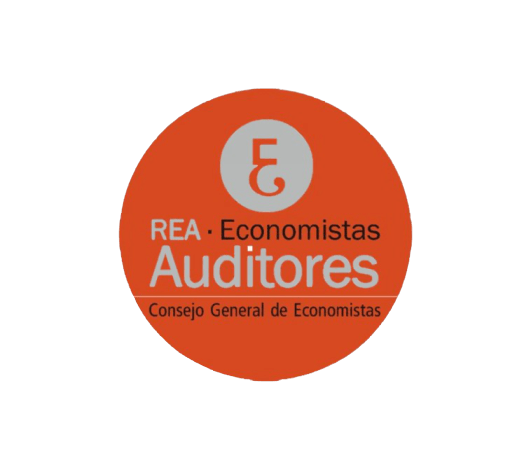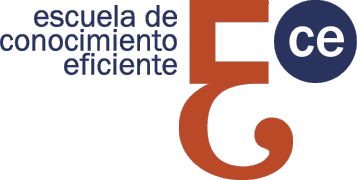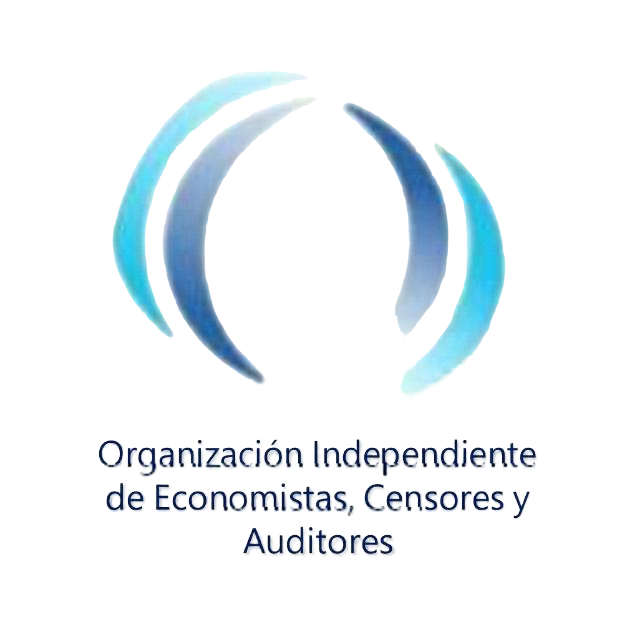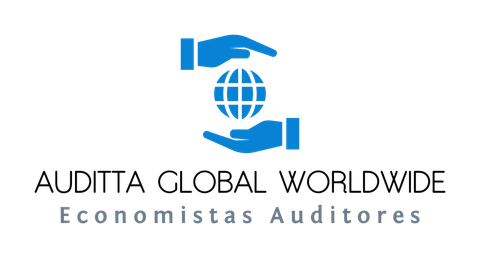COVID-19
COVID-19. ALARM STATE IN SPAIN
Let's prepare for the future. Change management is here to stay.
- NOTICE: ROYAL DECREE LAW (Files Chronologically Ordered).
- Royal Decree-Law 7/2020, of March 12,
- Royal Decree 463/2020, of March 14,
- Royal Decree-Law 8/2020, of March 17,
- Royal Decree 465/2020, of March 17,
- Royal Decree-Law 9/2020, of March 27.
- Royal Decree-Law 10/2020, of March 29.
- Royal Decree-Law 11/2020, of March 31.
- Royal Decree-law 12/2020, of March 31,
- Royal Decree-law 13/2020, of April 7,
- Royal Decree 487/2020, of April 10,
- Royal Decree-law 14/2020, of April 14.
- Royal Decree-Law 15/2020, of April 21.
- Royal Decree 492/2020, of April 24.
- Royal Decree-Law 16/2020, of April 28.
- Royal Decree-Law 17/2020, of May 5.
- Royal Decree-Law 18/2020, of May 12.
- Royal Decree-Law 19/2020, of May 26.
- Royal Decree-Law 20/2020, of May 29.
- Royal Decree-Law 21/2020, of June 9.
- Royal Decree-Law 22/2020, of June 16.
- Royal Decree-Law 23/2020, of June 23.
- Royal Decree-Law 24/2020, of June 26.
- Royal Decree-Law 25/2020, of July 3.
- Royal Decree-Law 26/2020, of July 7.
- IFAC - International Federation of Accountants
IFAC
As a result of COVID 19, IFAC has developed a website dedicated to the orientation and advice of the organizations with which it works.
The ultimate goal of this new page is to demonstrate the agility to adjust, innovate and manage this rapidly evolving situation. It is still in development, but already has thematic areas such as:
- Audit.
- Financial reports.
- Professional and personal well-being.
- Interesting articles on the COVID-19 crisis.
One of the most interesting articles on the page is a document detailing the impact of COVID-19 on the audit sector.
It talks about the fundamental role auditors play in providing an independent opinion on financial statements. They will need to carry out quality audits, applying an effective, efficient and appropriate approach to the execution of the appropriate reports.
At the moment, the attitude of the auditors will have to be of greater professional skepticism, since due to COVID-19 the auditor may not be able to obtain the necessary original documents or perform the planned audit procedures. The risks of making a wrong opinion are greater, because of the non-detection of fraud indicators, complex judgments or misidentifications.
The auditor will have to comply with all NIA and will have to pay special attention to the following rules:
- RISK ASSESSMENT: ISA 315 (Revised), Identification and assessment of the risks of material impropriety through knowledge of the entity and its environment.
- RELATIVE IMPORTANCE: ISA 320, Relative importance or materiality in the planning and execution of the audit.
- COMMUNICATION: ISA 260 (Revised), Communication with the heads of the government of the entity.
- COMPANY IN OPERATION: ISA 570 (Revised).
- AUDIT TESTS:
- ISA 500, Audit Evidence.
- ISA 501, Specific Audit Evidence.
- ISA 505, External Confirmations.
- ISA 540, Audit of accounting estimates, including fair value estimates, and related information to be disclosed.
- REAR EVENTS AND REPRESENTATIONS:
- ISA 560, Subsequent Events.
- ISA 580, Written Manifestations.
- AUDITOR REPORT: ISA 700 – ISA SERIES 799
- GROUP AUDITS: ISA 600, Special Considerations – Financial Group Audits.
Download the COVID19 Impact Audit Guide
IFAC - COVID-19 time global commitment
As a global voice of the accounting profession, our commitment is guided by the public interest, consistent with the mandate of the accounting profession. By 2020, the public interest was largely based on the sustainable development objectives of the United Nations. Issues such as corruption, climate change, gender equality, access to education and meaningful work are priority issues for IFAC and the accounting profession.
This article discusses a number of global touchpoints where IFAC should be possible, we have continued our commitment virtually.
IFAC - SUMMARY REPORTING DEADLINES AFFECTED BY COVID-19
This following information is obtained from public regulations and other public sources that relate to reporting deadlines that may have been affected by COVID-19. The summary has been written based on the information provided.
As such, it may not be comprehensive and/or other items issued by local regulators may not be included.
The document includes countries such as: United States, United Kingdom, Portugal, France, Germany, Canada, Australia ... A link to the document is attached.
IFAC - PROPOSED REVISIONS IN RELATION TO THE NON-INSURANCE SERVICES CODE AND THE FEES CODE
This article includes a summary of the revisions proposed by the International Ethics Standards Board for Accountants' (IESBA) and the provisions related to fees, focused on improving the International Standards Code. of Independence. The article explains the need to strengthen auditor independence and the specific concerns that have emerged in the regulatory community and in the Public Interest Oversight Board (POB).
Proposals for amendments to the non-assurance services code and proposed revisions to the fee-related code provisions that were published in January 2020 are made in published drafts.
The comment date has been extended to June 4, 2020.
IFAC - LAUNCH OF A PRACTICAL TRANSFORMATION ACTION PLAN FOR SMALL AND MEDIUM PROFESSIONALS
IFAC published a ‘Practice Transformation Action Plan – A Roadmap to the Future’ (the Plan), which covers four key focus areas for small- and medium-sized practices (SMPs):
• Embrace Change
• Leverage Technology
• Focus on Talent Management
• Evolve the Firm Operating Model and Build Advisory Services
The Covid-19 pandemic is an accelerator for the adoption of technology. Many firms are now operating virtually and supporting employees through flexible work arrangements. These extraordinary circumstances also offer practitioners significant opportunities to adapt and service a rapidly changing world. As trusted business advisers, they are best positioned to provide clients with a range of services to help navigate these difficult and uncertain times.
SMPs may still be in a ‘fire-fighting’ phase but want to be proactive and ready to adapt to radical and unplanned changes. Effective transformation requires strong leadership, new approaches to training and continued learning, and an emphasis on providing relevant, value-added services.
The Plan was developed with advice and guidance from the IFAC SMP Committee and recognizes that every firm will be different. The actions taken will need to be tailored to each firm’s circumstances and objectives to be successful.
We’ve created a dedicated ‘practice transformation’ web page, featuring case studies, examples of how Member Organizations are supporting their firms to innovate and evolve, as well as additional tools and resources.
Now is the time for practitioners to lead and become part of the solution for their clients and for their own future as we enter a whole new world.
- IFRS - Interntional Financial Reporting Standard
IFRS in Focus - Accounting considerations related to coronavirus disease 2019.
CONSULTATION ON THE MODIFICATION OF THE LEASE RULE TO ASSIST COMPANIES WITH RENTAL CONTRACTS, IN THE CONTEXT OF COVID-19
International Accounting Standards Board (IASB) has proposed the modification of IFRS-16 on leases for the accounting of contract changes as a result of COVID-19.
The objective of the revision of this standard is a relief to minds when applying IFRS-16.
The proposal will exempt tenants from having to consider whether considering changes to the lease are in relation to or with COVID-19, allowing them to apply these changes as if it were not such cases.
COVID-19'S IMPACT ON THE EVOLUTION OF AUDITING
Uncertainty and the unpredictability of the situation we find ourselves in can lead to risks of new material impropriety or even intensify those that already existed before. Some risks may not have been considered or considered differently when planning audits.
Auditors need to reconsider obtaining sufficient and appropriate audit evidence on which to base their opinion, some of the necessary additional information may include access to additional information, reconsider the risk assessment of material institution, changes in procedures in the posting.
Changes in the environment and difficulty in obtaining information can affect auditing companies, as financial information, changes in laws or regulations, obtaining subsidies, and conducting new transactions are new situations and can lead to fraud or errors.
The International Audit Standards on which auditors need to emphasize the most are: ISA 315 (Revised), ISA 330, ISA 540 (Revised), ISA 560, ISA 570 (Revised), ISA 600, ISA 700 (Revised), ISA 701 and ISA 720 (Revised).
EXPOSURE OF INTERNATIONAL STANDARD AUDITING 600 (REVISED)
In this article the ISAASB institution focuses its concern on ISA 600 (Revised). This rule speaks to the financial statements of audit groups.
The proposal is the introduction of an improved risk-based approach to planning and conducting a group audit by all the auditing firms involved. This approach is based on attention, effort and teamwork, assessing the risks of material inchoating in the financial statements.
Finally, they reinforce the idea of communication and interaction between the parties, as it is the most appropriate method for an optimal conduct of an audit.
- IAASB - International Auditing and Assurance Standards Board
STAFF AUDIT PRACTICE ALERT. MARCH 2020
The COVID-19 pandemic has left a mark difficult to reverse and the audit world has also been one of them. The impact on the work of auditors has created an environment of uncertainty and unpredictability in which new situations may appear or intensify those we already had. In planning the audit, auditors may not have considered these risks or considered the risks identified differently.
Audited entities are adjusting to changes in their business and operations environment, including financial reporting processes and their ability to maintain operations for the foreseeable future.
Similarly, auditors need to adapt to a new way of obtaining sufficient and appropriate audit evidence on which to base the audit opinion, reviewing the identification and assessment of certain material impropriety risks, and changing planned audit procedures or performing alternative or additional audit procedures.
Finally, other changes related to financial reporting may also affect auditing, such as changes in applicable financial reporting rules, changes in laws or regulations, or new transactions for the entity, such as obtaining subsidies.
Changes in how and where auditors are carrying out their work may require companies to respond to the changing environment, for example by considering quality control policies and procedures related to the direction and supervision of work teams and the review of their work. Auditors should have increased awareness of the possibility of fraud or error and taken into account the importance of the exercise of professional skepticism in conducting audit procedures.
Below are some of the most important areas that may need to be considered more thoroughly when designing and conducting audit procedures to obtain sufficient and adequate audit evidence, and to report accordingly.
Specific issues to consider:
- Identifying and assessing risks
- The impact on the new or revised risk audit approach that has arisen from COVID-19.
- Possible review of risk assessments already carried out.
- Necessary changes to planned responses arising from environmental impact, such as the ability to obtain sufficient appropriate audit evidence (e.g. stock count problems).
- The impact of the changes on the internal control system, which includes:
- Control environment.
- Changes in the planned dependence on controls to determine responses to identified risks of material impropriety.
- Greater focus on: The process of closing financial statements. The auditor's assessment of the general presentation of the financial statements. The auditor's conclusion as to whether an audit has been sufficient and adequate. Changes in regulatory factors that may affect accounting. If the assumptions are appropriate in the circumstances and in the context of the applicable financial reporting framework (e.g. cash flow forecasts, discount rates, etc.). If the data used by the entity is relevant and reliable. The effect of changing inherent risk factors, in particular uncertainty.
- The impact of COVID-19 (i.e. whether it has materially affected or is expected to have a material impact) on the auditor's assessment of the management of the company underway.
- Reconsideration of the suitability of the use of the business underway (company in operation).
- Identification of any subsequent events material of EVENTS related to COVID-19, and whether these have been adequately addressed or disclosed in the financial statements.
- If reassessment of the planned procedures of the group auditor, i.e. approach to the need for alternative procedures.
- Reporting deadlines may change or increase the delivery period (and therefore risks related to this situation), taking into account that events or situations that occur between the date of the financial statements and the date of the auditor's report must be taken into consideration.
International audit standards referred to in this publication:
- ISA 315 (Revised), Identification and evaluation of the risks of material impropriety by understanding the entity and its environment.
- ISA 330, The auditor's responses to the risks assessed.
- ISA 540 (Revised), Audit of Accounting Estimates and Related Disclosures
- ISA 560, Subsequent Events.
- ISA 570 (Revised), current concern.
- ISA 600, Special Considerations: Audits of the group's financial statements (including the work of component auditors).
- ISA 700 (Revised), forming an opinion and reporting on the financial statements.
- ISA 701, Communication of Key Audit Issues in the Independent Auditor Report.
- ISA 720 (Revised), Auditor's responsibilities related to other information in documents containing audited financial statements.
STAFF AUDIT PRACTICE ALERT. MAY 2020
Auditor Reporting:
This publication highlights key areas, taking into account the current environment, in the presentation of audit reports in accordance with the International Standards on Auditing (ISA) and the International Standards on Engagement Review (ISRE). This practice audit publication refers to the reports of the auditor who audits an entity's financial statements in accordance with ISAs, or when the auditor agrees to review the interim financial information of that same entity. in accordance with the provisions of ISRE 2410.
Reporters, corporate governance officers, and users of financial statements may find this publication helpful in understanding potential audit impacts and interim information review reports that arise as a result of current circumstances.
• Staff Audit Practice Alert: Subsequent Events:
This publication highlights the main aspects to take into account, in the current environment, when carrying out procedures related to subsequent events in accordance with International Standards on Auditing (ISA).
Reporters, those charged with governance and users of financial statements may find this publication useful in understanding the auditor's responsibilities in relation to subsequent events.
- IPSASB - International Public Sector Accounting Standards Board
In this publication, conducted by IPSASB, we can find a document in which it tries to answer frequently asked questions about the different types of government interventions to mitigate the impacts of COVID-19. The document also sets out the great importance that reports will currently have for government decision-making, to have transparency of how public resources are used, and to address the impact of the problem more clearly.
Some questions that appear are:
- Main government interventions to reduce the impact of COVID-19.
- Different questions about IPSAS and which will be helpful.
- Limitation of the impact of non-commercial loans.
- Impairments of assets that have been inactive by physical estrangement.
These measures dealt with by IPSASB may be subject to change, by the implementation of new government measures. This document will probably be updated over time.
IPSASB - ACCOUNTING TRANSPARENCY WILL BE KEY
This article of 24 April 2020 mentions that the International Monetary Fund has announced that the global economy will suffer a financial crisis throughout 2020, with a global economic downturn of 3%.
In these two months, since the start of the pandemic, global GDP has fallen by 3.5%, reserve funds have been used and public debt has been issued so that the economy can withstand and does not collapse unchecked. This pandemic will have an impact for several years and state interventions will be key to economic stability.
Financial reporting, accounting information and business transparency about their activities will therefore be a very important support for the growth of the already damaged economy in which we find ourselves. If the information we find is clear, accurate and reliable, it will give the population a more confident situation and help stabilize the economy.
- EFRAG - European Financial Reporting Advisory Group
Coronavirus crisis: implications on financial information and auditing and measures of interest to address this crisis.
- EFAA - European Federation of Accountants and Auditors for SMEs.
EFAA calls for measures to support small and medium-sized firms struggling to survive the current crisis and calls for specific measures to be implemented as soon as possible.
Brussels, 12 March 2020 – EFAA, the European Federation of Accountants and Auditors for SMEs, represents more than 350,000 professionals across Europe. Our members are professionals or micro, small and medium-sized accounting firms that provide accounting services to millions of SMEs.
Small firms will be heavily affected by the economic consequences of restrictions to protect the health of COVID-19 citizens.
The economic consequences of these restrictions will be disastrous for very small firms and self-employed professionals and for all their SME clients.
EFAA calls for immediate action by the EU institutions to support national economies in general, as well as specific measures to alleviate the burden that such an economic crisis will bring. Delays in tax payments, social security contributions, and loans are an example. Stimulus measures should also be proposed at EU level.
- CEAOB - Committee of European Auditing Oversight Bodies
The Committee of European Auditing Oversight Bodies has issued a communication on the COVID-19 pandemic, in particular on the effect it may have on the work of auditors affecting the quality of the audit.
In this context, CEAOB stresses that auditors should take into account the effects of the pandemic especially in the following areas:
- Obtaining sufficient appropriate evidence.
- The evaluation of the application of the principle of company in operation.
- The following facts.
- Information and disclosure of effects.
The communication addresses, in detail, each of these areas and highlights the necessary monitoring and communication between auditors and supervisors to help minimize the potential negative effects.
- ACCA - Association of Chartered Certified Accountants.
As professional accountants, our members are at the forefront of managing, protecting and advising on the financial stability and integrity of companies and organizations around the world. ACCA members will continue to play a key role in assessing the financial implications and risks of Covid-19, helping to guide organizations through challenges and playing a key role in business continuity. This is an important part of the public value demonstrated by the profession: providing leadership in difficult circumstances.
"At this time, we are well aware of the changing needs and concerns of our members and ACCA's broader connections and will work to leverage collective knowledge and that of this activity for mutual benefit. Our goal is to find alternative approaches, so that we can continue to support our members, students and stakeholders for the duration of the outbreak and beyond. We will continue to report on the impact of this virus and update it with any major developments."
- BUSSINESS EUROPE
BusinessEurope is the body that ensures the growth and competitiveness of companies at European level. Business organizations in 35 countries are direct members. For Spain, the CEOE, as it could not be otherwise, is the national member federated by our country.
However, that body has published a document consensual with the 35 Business Organisations of the Countries of the Euro Zone called "Proposals for a European Economic Recovery Plan". The economic recovery plan rests on 4 basic pillars, which are:
- PILLAR 1: RAPID DEPLOYMENT OF EU INVESTMENT FUNDS AS PART OF AN AMBITIOUS AND EU-COORDINATED STIMULUS FISCAL PLAN.
- PILLAR 2: A REVITALIZED SINGLE MARKET AND A STRENGTHENED SINGLE CURRENCY, AS PART OF A CLEAR COMMITMENT TO SUPPORT SUSTAINABLE INVESTMENT, GROWTH AND EMPLOYMENT.
- PILLAR 3: THE EU AS LEADER SHOULD SUPPORT AND LEAD MULTILATERAL SOLUTIONS AIMED AT STRENGTHENING FAIR AND FREE TRADE AND INVESTMENT RULES.
- PILLAR 4: STRENGTHENING EU GOVERNANCE TO ENSURE EU FINANCIAL SUPPORT AND THE INJECTION TO MEMBER STATES OF GROWTH AND EMPLOYMENT IMPLEMENTATION MEASURES, IMPROVING STRUCTURAL REFORMS.
- Download document.
- Other Bodies, Agencies & Journals
ICAEW (Institute of Chartered Accountants in England and Wales).
ICAEW has published a guide to assisting companies in the challenges that have arisen.
ACCOUNTANCY EUROPE. Coronavirus crisis: implications for reporting and auditing
The economic effects of the pandemic have an impact on accounting and audit reports of the financial statements of companies and groups. This publication highlights some of these possible implications. However, the impact on companies will be different, and companies and their auditors should consider how it affects their business as well as review them regularly. Subsequent development, duration and impact of coronavirus cannot be predicted. In any case, accountants and auditors should remind companies of the various national aid initiatives. Below, we discuss the effects of coronavirus on:
-Accounting and financial information as of December 31, 2019;
-Accounting and financial information with fiscal year-end closings in 2020;
-Audit of the financial statements as of December 31, 2019 and below;
-Practical aspects in the audit of financial statements.
AICPA. Association of International Certified Professional Accountants. Together: What they can do to deal with the coronavirus.
The National Association of Corporate Directors, a U.S. non-profit member organization, provides board members with a list of 6 actions they can track to address the risk generated by COVID-19 and thus increase the resilience of the companies they oversee.
Journal of Accountancy. How coronavirus can affect Financial Reporting and Auditing .
The coronavirus pandemic represents significant changes for those responsible for drawing up the company's financial statements and, also, for auditors. In the face of disruptions in global supply chains and other business activities, the SEC and PCAOB issued a guide for businesses and auditors in mid-February on how they should manage their response to the pandemic. "We urge issuers to work with their audit committees and auditors to ensure that their financial reporting, auditing and review processes are as robust as possible in light of the circumstances to meet applicable requirements," the regulators said.
- NIST - National Institute of Standards and Technology
The Information Technology Laboratory (ITL) at the National Institute of Standards and Technology (NIST) promotes the U.S. economy and public welfare by providing technical leadership for the Nation’s measurement and standards infrastructure. ITL develops tests, test methods, reference data, proof of concept implementations, and technical analyses to advance the development and productive use of information technology. ITL’s responsibilities include the development of management, administrative, technical, and physical standards and guidelines for the cost-effective security and privacy of other than national security-related information in Federal information systems. The Special Publication 800-series reports on ITL’s research, guidelines, and outreach efforts in information system security, and its collaborative activities with industry, government, and academic organizations.










